HOME >> CHINA
Melody makers
Source:Global Times Published: 2015-11-17 19:58:06
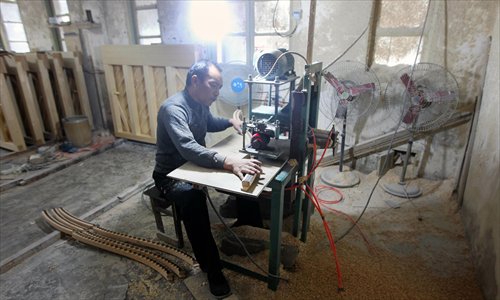
A piano maker polishes wood for a piano on Tuesday. Photo: Yang Hui/GT
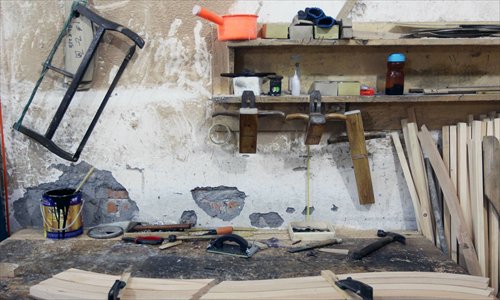
The tools used to make pianos lie on a workbench. Photo: Yang Hui/GT
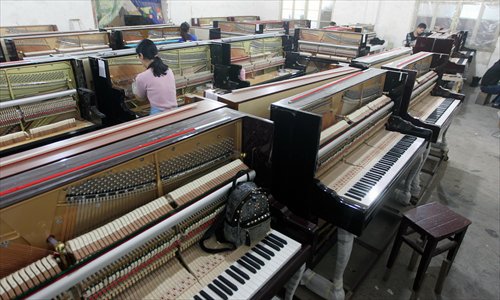
The Bolan Piano factory founded by Yu Photo: Yang Hui/GT
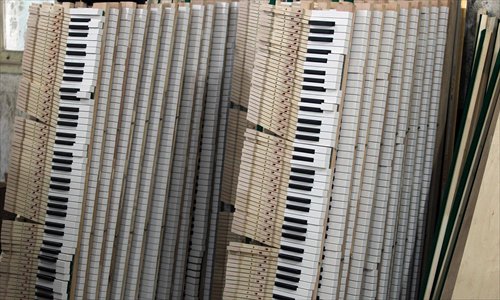
Piano keyboards sit piled up in the corner. Photo: Yang Hui/GT
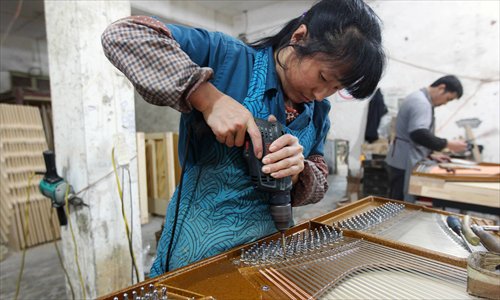
A worker tightens piano strings. Photo: Yang Hui/GT
Luoshe town 60 kilometers from Hangzhou, Zhejiang Province, was full of dusty mines 20 years ago. Now Luoshe has found its tune again and more than 50 piano-making factories are based in the town, making this the epicenter of piano-making in China. A sixth of China's pianos are produced in Luoshe.
Yu Rongren, 55, is a native of Luoshe. When he retired from a brick factory in 1998, he opened a mine. But mines are highly polluting and at the time the village had 18 of them. In 1984 the first piano company was built in Luoshe, and in the following years several State-owned piano factories were built. However, during the late 90s and early 2000s, mining took over and the factories were abandoned.
Dust and other pollutants coated the whole area. The by-products of mining made the air in the village unbearable. "It can't be like this anymore," Yu said to himself.
Music, of a kind, is in the genetics of Luoshe, an ancient center of calligraphy. In traditional Chinese thought, calligraphy was a form of rhythm, each stroke moving to a pattern. But newer traditions, such as Christianity, have reinvigorated the town's music culture.
Zhejiang is home to China's largest Christian community and has hundreds of churches, creating a demand for pianos. A church was built in Luoshe in 2006.
In 2003, Yu sent his son to Shanghai to study piano-making and tuning. When he returned, they started a piano factory.
Making a piano is a routine. The art is in the tuning.
In Yu's 1,000 square-meter factory 30 workers build, polish, string and paint pianos by hand. The town's history of craftsmanship and attention to detail is integrated into every step of the process. This can be seen from the way the factory tunes its pianos, with each piano being tuned and tested seven times to ensure it is pitch-perfect.
Last year, Bolan Pianos produced 1,500 pianos. Each piano sold brings them a profit of 1,000 yuan ($156), an annual total of 1.5 million.
The 3,000 steps and 9,000 components it takes to make a piano all work together to make music, which is the future and past of the town. As more and more people learn this trade, they set the town on the long road towards a cleaner and more prosperous future.
Posted in: In-Depth